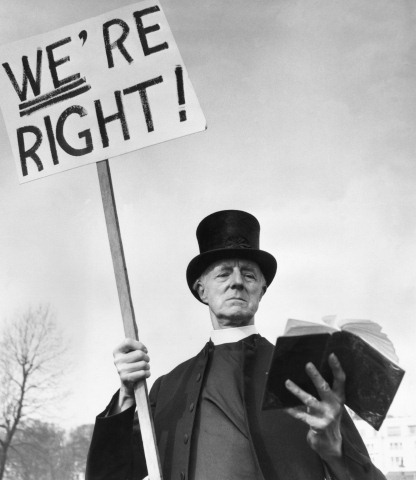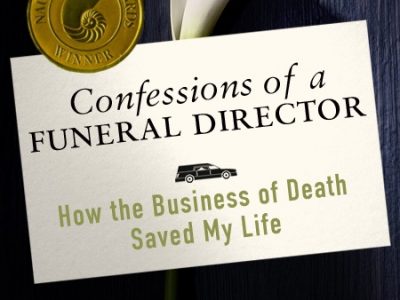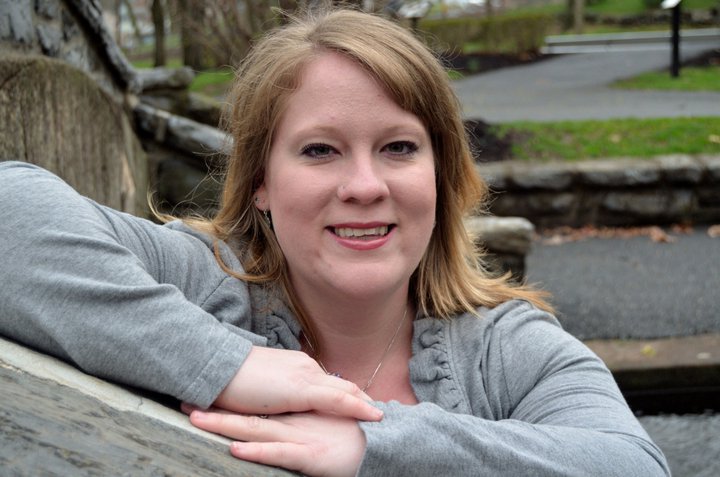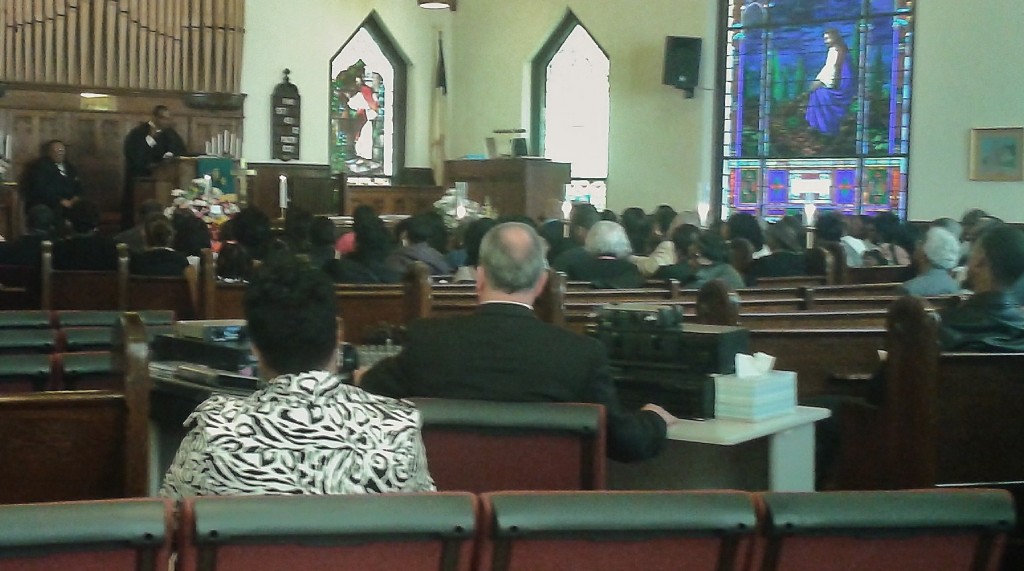Are You Confident that Life Exists after Death?
I’m not too sure I like the idea of arriving to heaven in a state of human perfection, where I’m free of my mistake ridden, gas producing body; and, where I somehow transcend my sometimes mischievous, often depraved, usually creative and darkened mind. I don’t like the perfect me.
Or, rather, I don’t like perfect me in the Greek philosophy sense of perfect, where I’m static, gloriously unmovable and unable to grow. I like the unGreek idea of perfect me, where perfection is growth! Where perfection is sometimes mistakes!
If the next “world” is an “afterlife” where we sit around like a bunch of 60 somethings at a high school reunion reminiscing about the old times, then take my name off the sign-up sheet. Life is growth. Eternal life is some type of eternal growth. But if the eternal is somehow after life, where we sit and admire both our own and God’s timeless perfection … then it’s not for me.
I want messy relationships with God and others. I want a place where it takes an eternity for the finite to exhaust the infinite. I want a place that’s lived in … not some fancy mansion where every little piece of furniture is in its rightful place, where the white carpet can’t be tread upon and the windows can’t be smudged. Give me the place where I can be myself and allow God and others to mold me as I interact with them. I want a place that’s dirtied by the use of people.
****
But I have a secret doubt that I’m afraid to admit. I’m afraid to admit it because this doubt could undermine both my legitimacy as a Christian and my ability to comfort people during their weakest moments.
Sometimes I doubt the whole resurrection and eternal life thing even exists. In fact, there’s times when I tell myself I have to learn to be content with this life because it could be all I’ll ever have.
I know that Jesus talks time and time again about eternal life, but is it possible that his understanding of eternal life is different than ours? Yes, it’s possible.
For those of us that are Christians, sometimes it’s the highest expression of our faith to believe in something that’s unseen. And so it’s hard to admit when we doubt about the seemingly certain promises of the unseen eternal life that’s promised in God’s Word. It’s as though we’re being faithless and, in a sense, unChristian if we doubt and question the life to come after death.
Realizing that few of us are brave enough to put our doubts out in the public for all to question, I’ve set up this anonymous poll.
Please answer honestly. I realize that many have NO doubts about eternal life. And I also realize that some of you have totally written off eternal life as a type of “opiate for the masses”. Either way, feel free to respond according to what you believe.
Once you take the poll, it will show you the results.
[polldaddy poll=5986253]
When You Feel Guilty for Having a Good Day
Today’s guest post is from Brenda Lee. This post was written on November 11th, 2008 … two weeks after her husband’s death.
*****
I kind of feel guilty saying this, but overall, today was a good day. Despite not wanting to get up this morning (facing the official 2 weeks since…), I eventually got my bum moving and went to lunch with a great friend. Afterwards, I went to the interview and it went surprisingly well. I have no clue if they’ll hire me, but they’re flexible with when I want to start. The only concern I have is I think it’s only 20 hours instead of 24, which means I may not qualify for benefits. So…we’ll just see what I’m offered and go from there.
Tonight I got out of the house with a friend for coffee and it was just GOOD. One vice I have picked up is a new coffee addiction, but I figure that’s better than any of the alternatives!
Pray for Linda as she had a rough day and really needs support. We all have bad days and good days, and, of course, they aren’t always going to correlate.
I’m very adament about taking my own timeline on things. After discussing everything with my friends today, I am on the “right” track. The fact is, for the past 4 months my minute by minute job was taking care of Kevin. That WAS my job whether it was official employment or not.
My life is gone. I don’t say this to sound hopeless, because I am not hopeless. In fact, for whatever reason, God handed me a clean slate, a new life. As much as I want my old one back, I don’t have a choice. I no longer have a job, a home (that’s “mine”), a husband, a routine, even my car is different. The only thing I have left is faith, family and friends. My triple f, which is helping me immensely.
So, for me to go to a “routine” and “get back in the swing of things” isn’t going to happen. There is no SWING OF THINGS. As I said, I am hopeful, but it’s not going to be easy. Everything I do from here on out is new and different and will take even more time adjusting to. Starting a new job is NEVER easy, let alone when you’re an emotional basketcase and a new widow. In time, I’ll want to find my own place, in time, I’ll have a new routine. In time.
So….in time, this will happen. But I’m not going to rush it. I’m going to take weeks…maybe even months to “get back in the swing of things”. I am putting this out there because for me, finding a job, a “routine” isn’t really helpful to me right now. It scares me to death, and trust me, I’m finding things to fill my time with. I don’t have an immediate need to go back to work, to set a schedule. My immediate life right now is getting through each minute and doing things for myself.
..and that’s what I need to do. So thank you for respecting that and giving me this time. Thank you for allowing me this because this is all I need right now. Faith, family and friends. Everything else will fall into place as it is supposed to, and I’m not going to rush a thing.
So..it’s been a good day. And I pray tomorrow will be as well.
*****
Brenda Lee is a freelance writer and blogger whose topics include travel, events, and businesses in central Pennsylvania. Widowed at just 24, Brenda is now an advocate for sarcoma cancer, and is working to change how society discusses grief and accepts those grieving at an early age. She is an award winning writer and is currently editing the first draft of her memoir, “Keepin’ it Kevin” detailing her love and loss story.
You can connect with her on Facebook, on Twitter and at her blog.
Symbolic Immortality and the Hatred of Others
I’ve often asked a variation of this question: Why do Christians fight each other so much? Think Rob Bell, John Piper and Mark Driscoll.
I have a couple theories.
The main one is this: selfishness. Egotism. Narcissism. Sin. Whatever you want to call it. That wrongful attitude that puts the almighty ME above everything else. Even though we claim to be like Jesus, our selfishness proves otherwise.
But there’s a couple other theories as well:
Two: we become tribalistic and smear on the hate to all the “others” who aren’t a part of the “evangelical” tribe, or the “American” tribe, etc.
The third theory is the sibling rivalry theory; that those closest to us are usually the ones who have the greatest potential to receive our love and, when we disagree, our hate.
My main theory for us evangelical /protestant types is that we’ve simply vested too much of the Christian life into orthodoxy and too little into orthopraxis and orthopathos, so that any small disagreement warrants hate mail.
But here’s another theory that’s right up my ally, that few of us — including myself — have heard of.
*****
It comes from Pulitzer Prize winner Ernest Becker. Becker combines the denial of death, symbolic immortality and — at least in this discussion — religion to offer an explanation for hatred. And if you’re interested in Becker’s theory, here’s the short of it:
Denial of death, according to Becker, is an all encompassing explanation for human endeavors.
Death, though, for Becker has two levels of meaning: The first level is phyiscal death. After all, how many times a day do we attempt to distance ourselves from death? Do you eat healthy? Do you wear a seat belt? Do you stand more than 14 inches away from the microwave, and put on a radiation suit if you must go within the 14 inch safe zone?
The second understanding of death plays more into our discussion. This type of death can occur during life. It’s the type of death that takes place when we experience a loss of meaning, worth or affirmation.
On a corporate/community/national level, Becker would say that religion, war, art, science … nearly every human endeavor is an attempt to save us from this second understanding of death … from the void of nothingness … the forgotteness that comes when we’re simply a nobody.
And this type of denial of death … of being apart of something meaningful … is a symbolic immortality, as its something that will live on beyond us.
Robert J. Lifton coined the phrase “symbolic immortality” and he posits five ways we attempt to obtain this type of immortality:
Through the produce of our lovemaking. Ex.: Children, grandchildren, our family.
Through our art work, scientific discover or our product. Ex. Ford, Mozart, Darwin, etc.
Through the well-being of nature. “So that our children can live better than we do”; the green movement.
Through a transcendent experience. Buddhism, the born again experience, nirvana
Through our involvement with a community larger than ourselves. Political party, religion, etc.
*****

The hatred of others, posits Becker, occurs when somebody else’s symbol starts to tread on ours. If you threaten my children, you threaten my significance … my contribution to the world … my stake in something greater … my symbolic immortality.
If you threaten the work of my hands, you threaten the mark I’ve made in this world. You’ve questioned my worth and contribution and you’ve essentially diminished and cut off my contribution … the thing that’s made me significant.
And finally, if you threaten my religion … if your community of faith overtakes my community of faith, you’ve questioned my/our story. You’ve diminished our chance for meaning in the history of humanity. If you question us, you call into question our meaning … our worth … our contribution … and for that, we will fight you.
Yesterday I Saw the Body of Christ at a Funeral …
… and I took a picture of it.
There’s only two white guys in this picture: the one is the white pastor who is sitting beside the soundboard. The other is the white Jesus engraved in the stain glass. The rest are African American.
There’s a white Jesus in stained glass because this is a white church, that has had 30 plus pastors in it’s history, all of whom have been white.
And today the church is full of African Americans in a white church for a funeral.
The Mt. Zion AME church is in the process of being renovated. And this week the Mt. Zion AME church lost not one but two of their members.
The Parkesburg United Methodist Church opened their doors, their sanctuary and their cafeteria hall for not one, but both funerals.
African Americans in a white church where the white pastor isn’t in the pulpit, but serving the black female pastor in the pulpit by running the soundboard. In fact, he was serving since 8 AM in the morning when he helped carry the casket up the two flight of steps and into the sanctuary; when he vacuumed the entire sanctuary at 9 AM; extended gracious hospitality from 10 AM to 11 AM; and even organized five members of the auxiliary crew to set up plates and places for 100 plus people for the post funeral luncheon in the cafeteria hall.
This is how unity is supposed to work.
One hundred years ago, this wouldn’t have happened. Fifty years ago … maybe even 10 years ago this wouldn’t have been considered. But today I witnessed it. I witnessed the body of Christ.




